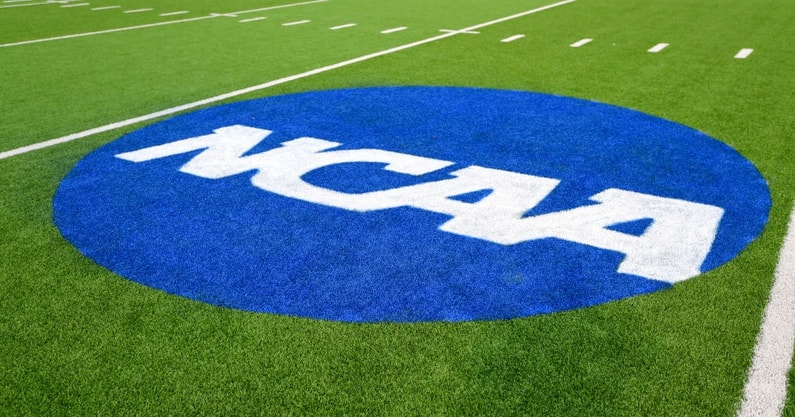Adam Rittenberg gives update on Power 5, FBS programs possibly leaving NCAA

ESPN analyst Adam Rittenberg spoke on the Paul Finebaum Show about the growing possibility of college football separating from the NCAA. According to Rittenberg, the Power 5 conferences and the FBS at large are continuing to explore options of self-governance for football — independent of the NCAA rules and structure.
Adam Rittenberg on future of NCAA football
“I think we’re closer and closer to Power 5 leagues, if not all of the FBS, breaking away and self-governing in a different way,” said Rittenberg. “Not being under this NCAA umbrella in terms of making rules, making policies. There’s a real level of frustration and a motivation to do something differently.”
The idea of having college sports leave the NCAA umbrella has grown in popularity quickly over the offseason, as the success of the College Football Playoff system has appeared as an alternative for proponents of the change. This, combined with the rapidly changing landscape of NIL deals and the NCAA Transfer Portal, have made many programs push for quicker rule changes and better enforcement of those rules by the NCAA.
Rittenberg’s update doesn’t indicate whether or not the FBS has officially begun talks to leave the NCAA, but it lines up directly with many reports that indicate schools have discussed the idea.
Top 10
- 1New
Lamont Butler
Injury update on Kentucky star
- 2Hot
DeMarco Murray
PSU eyeing OU assistant
- 3
Seven QBs in first 3 rounds
New NFL mock draft
- 4Trending
Bracketology
Big movement after turbulent week
- 5
Paul Finebaum
CFB struggle to catch NFL
Get the On3 Top 10 to your inbox every morning
By clicking "Subscribe to Newsletter", I agree to On3's Privacy Notice, Terms, and use of my personal information described therein.
Ohio State AD Gene Smith on leaving the NCAA
Ohio State athletic director Gene Smith had recently proposed an alternate path for the future of college football, possibly independent of the NCAA. Smith proposed the idea that college football is large enough to require a unique set of rules and governance that the College Football Playoff system could possibly provide guidance for. The proposal would greatly alter the nature of college football and the NCAA rules that oversee programs.
“We [can] create our own rules, create our own governance structure, have our own enforcement, we have our own requirements, whatever that might be,” Smith said. “That might be in the medical space, for example, if a student-athlete is injured and hurt in his or her senior year. You take care of them when they’re done until they’re healed. And we have the funding in place to do that. You don’t touch anything else with the NCAA. You keep the academic requirements in place. The reality is, those schools who offer 85 scholarships in football have made a different commitment and that needs to be addressed.”
Smith stated that he has shared the idea with his peers and opinions are mixed on the change. Overall, the direction of college football has been dramatically shifting over the past few years with the changes to Name, Image and Likeness deals and the NCAA Transfer Portal. As the landscape shifts, Smith and proponents of this change believe the rules for large football programs need to be customized to the sport itself.